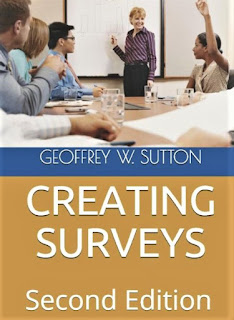Assessment name: Defense Mechanisms
Rating Scales-Self-Report-30 (DMRS-SR-30)
Scale overview: The Defense
Mechanisms Rating Scales-Self-Report-30 (DMRS-SR-30) is a 30-item self-administered
measure of psychological defense mechanisms that assesses overall defensive
functioning. The 30-items were developed based on the Q-Sort version known as
the DMRS-Q (Di Giuseppe et al., 2014).
Authors: Tracy A. Prout, Mariagrazia Di Giuseppe, Sigal Zilcha-Mano, J.
Christopher
Perry & Ciro Conversano
Response Type: Items are rated on
a scale of frequency as follows:
0 = Not at all
1 = Rarely/slightly
2 = Sometimes/somewhat
3 = Often/ a lot
4 = Very often/ much
Scale items
There are 30 items related to defense mechanisms. The
items represent defense mechanisms and are organized into categories based on three
factors.
Factor 1. Mature Defenses in the High-Adaptive
level
Affiliation
Altruism
Anticipation
Humor
Self-assertion
Self-observation
Sublimation
Suppression
Factor 2: Mental Inhibition and Avoidance –
Obsessional, Neurotic and Disavowal levels
Isolation of affects
Intellectualization
Undoing
Repression
Dissociation
Reaction formation
Displacement
Denial
Autistic fantasy
3. Depressive and Immature defenses
Devaluation
Idealization
Rationalization
Projection
Projective identification
Splitting of other’s image
Splitting of self-image
Passive aggression
Help-rejecting complaining
Acting out
Reliability and Validity
See Di Giuseppe et al. (2020) and Prout et al. (2022) articles
below for psychometric data on the DMRS-30-SR scale. The researchers have
provided the results of a factor analysis, coefficient alpha values, and
correlations with other measures.
The results yield several scores. The ODF (Overall
Defensive Functioning) score is based on all 30 items. Prout et al. (2022)
reported ODF (M = 5.43, SD = 0.61) alpha .90 in their sample of
1,549 participants.
Availability:
The full text of the English and Italian versions can
be found in the Di Giuseppe et al. (2020) article below.
Read more about defense mechanisms in psychology
References
Di Giuseppe, M., Perry, J. C., Lucchesi, M.,
Michelini, M., Vitiello, S.,
Piantanida, A., Fabiani, M., Maffei, S.,
& Conversano, C. (2020).
Preliminary validity and reliability of the
novel self-report based on
the Defense Mechanisms Rating Scales
(DMRS-SR-30). Frontiers in
Psychiatry, 11, 870. https://doi.org/10.3389/fpsyt.2020.00870
Di Giuseppe, M., Perry, J. C., Petraglia,
J., Janzen, J., & Lingiardi, V.
(2014). Development of a Q-Sort version of
the Defense Mechanism
Rating Scales (DMRS-Q) for clinical use. Journal
of Clinical
Psychology, 70(5), 452–465. https://doi.org/10.1002/jclp.22089
Prout, T. A., Di Giuseppe,
M., Zilcha-Mano, S., Perry, J. C. & Ciro C. (2022) Psychometric
Properties of the Defense Mechanisms Rating Scales-Self-Report-30 (DMRS-SR-30):
Internal Consistency, Validity and Factor Structure, Journal of Personality
Assessment, 104, 6, 833-843, DOI: 10.1080/00223891.2021.2019053
Reference for using scales in research:
Buy Creating Surveys on
Reference for clinicians on understanding assessment
Buy Applied Statistics for Counselors
Resource Link- Find More Tests : A – Z Test Index
NOTICE:
The information about scales and measures is provided
for clinicians and researchers based on professional publications. The links to
authors, materials, and references can change. You may be able to locate details
by contacting the main author of the original article or another author on the
article list.
Post Author
Geoffrey S. Sutton is a
retired psychologist with post-doctoral credentials in neuropsychology and
psychopharmacology. He is also Professor Emeritus of Psychology where he taught
research methods and statistics to undergraduate and graduate psychology
students. His website is www.suttong.com
His books are available at
AMAZON GOOGLE
STORE
Connections on
FACEBOOK Geoff W. Sutton
TWITTER @Geoff.W.Sutton
PINTEREST www.pinterest.com/GeoffWSutton
Read published articles:
Academia Geoff W Sutton
ResearchGate Geoffrey W Sutton



Comments
Post a Comment